LEGEND OF TEA AND HOW IT CAME TO BE!
What is the world’s most popular drink? (after water) Let’s take a look at the legend of tea and how it came to be!
And how I’ve become such a good poet? NOT.
WHICH BEVERAGE IS THE ONE MOST CONSUMED BY HUMANS?
TEA!
If you guessed tea, you’d win!
With this fact in mind, it follows that tea is one of the oldest beverages known to man! Its beginnings date to prehistory, a time shrouded in legend and myth. The legend of tea!
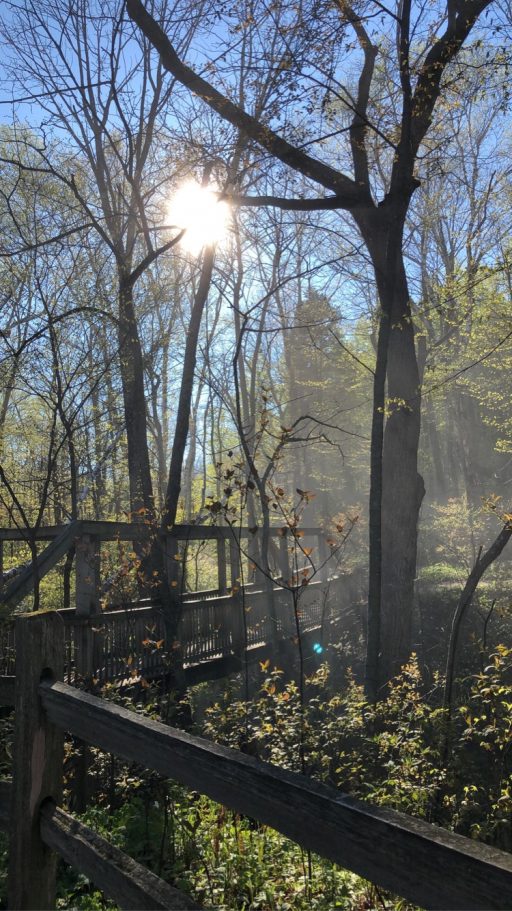
ORIGINS OF TEA OR HOW TEA CAME TO BE
Tea’s origins began in China, specifically the Yunnan region (see my professionally drawn blue arrow on the map) Click on the map to enlarge!)
This area is long considered the source of indigenous tea bushes. Along Yunnan’s southern edge, its borders with Myanmar and Laos meet easily on paper, however it’s a rugged mountainous area of forested jungles that— in reality—is difficult to separate.
Anthropologists now know that tea trees existed (and still exist today) in enormous swaths of remote forested land that straddled the border areas of those countries. Back then, there were no country borders. Hence the debate you may see about tea’s origins!
They also speculate that prehistoric humans (homo erectus) discovered indigenous tea trees.
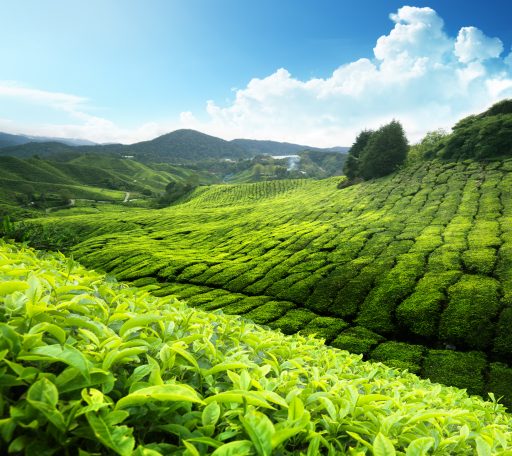
Along with the skills of fire-building, they may have burned the wood of the many tea trees they found.
They most likely experimented with adding tea leaves and forest barks to boiling water. One taste of caffeine, and I suspect they were hooked!
I doubt homo erectus had cell phones or flip flops or cans of beer. They may have had adorable puppies, however…
EARLY BELIEFS ABOUT TEA
Ancient Chinese healers believed the Great Mother Goddess imbibed plants and minerals w healing properties. That’s why jade is so revered; it is thought to be a stone that stores up ‘soul substance.’ Tea leaves are a brilliant shade of evergreen. It may be why in China, tea came to be known as ‘froth of the liquid jade.’
At first, tea was consumed for its medicinal properties. For any given ailment, tea leaves were boiled with other plants, seeds, barks, and leaves. This laid the groundwork for China’s famous herbal-healing traditions.
FROM RELIGION TO CULTURE
China’s three great philosophy religions, Buddhism, Confucianism, and Daoism, sprouted during the Zhou dynasty (1122-256 BC) All three embraced tea for its healthful virtues and powers of rejuvenation.
I suspect the monks and priests found that tea helped them stay awake during long mediations!
The emperor responsible for unifying China began construction of the Great Wall.
Cultural unification also occurred under his reign. Word spread about the beneficial tonic called tea.
Different dynasties rose and fell, and with them, attitudes about tea changed. Tea became associated with high art, luxury and culture.
Eventually, barbarians in the west learned of tea. Trade became robust.
EXCHANGING ONE ADDICTION FOR ANOTHER
I could write a book about tea’s spread from east to west. Let’s fast forward instead, to Great Britain in the 18th century and the East India Company. Westerners were obsessed with tea, but China held the reins. And China wanted cash for tea. (At that time, cash meant silver) British traders were at their wits’ end. What did they do? They traded one addiction for another.
Sneaky. Clever. Evil.
Papaver somniferum (opium from the poppy plant) for Camellia sinensis (tea leaves)
What a deal.

In 1729, because of concerns about the spread of addiction, China had issued an edict against smoking opium. But that did not include importation. (loophole much?)
Thus started one of the most sinister chapters in Western imperialist history. The Opium Wars!
OPIUM WARS
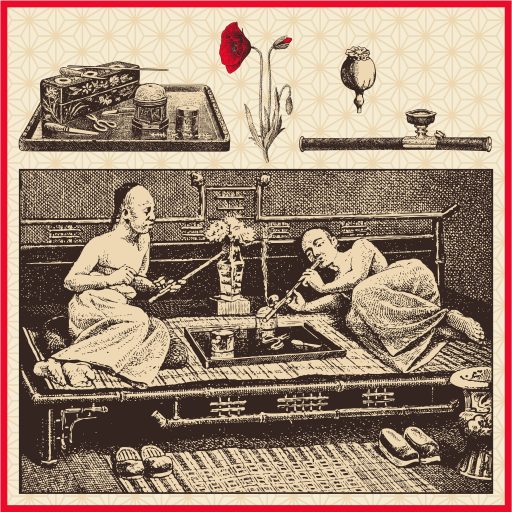
Two armed conflicts, called the Opium Wars, followed China’s attempts to suppress opium use within its borders, and British efforts to keep opium trafficking routes open so they could sell tea. In each case, the Chinese lost, and European powers gained commercial privileges and land concessions from China. (Bye bye Hong Kong!)
Speaking of Drugs....CHEMISTRY OF TEA
Tea leaves have several beneficial drugs. (NOTE: this post does not condone the recreational use of opiates in any form…Alex suggested I add this)
Yes, tea has caffeine. (more on caffeine here!)
Caffeine can be found in the seeds, leaves, and fruit of more than sixty plants.
The amount of caffeine in tea leaves varies from 2-5%. It’s not necessarily true that black tea has the most caffeine, white the least, with oolong and green in between.
It is true that young tea leaves have less caffeine than older ones, and since white teas are made up of more young leaves, a cup of white tea has less caffeine.
Interestingly, a pound of tea leaves has more caffeine than a pound of coffee beans! (more about coffee here!)
The difference is that on a weight basis, more bean is needed to brew coffee than tea leaf to brew tea!
L-theanine is an amino acid. It is not an essential amino acid (meaning necessary for growth and development and not produced by the body, so essential amino acids must be ingested.)
L-theanine is hypothesized to:
- Affect neurotransmitters in the brain by boosting cognitive function
- Reduce anxiety
- Increase weight loss
- Boost the immune system
- Help with relaxation
Epigallocatehin 3-gallate or EGCG is a catechin, meaning an anti-oxidant. (read more here!) In short, anti-oxidants:
- Lower triglycerides
- Inhibit accumulation of fatty acids
- Repair cell damage by removing free radicals
I’m with President Lincoln who supposedly said “If this is coffee, please bring me some tea; but if this is tea, please bring me some coffee.” –
I’m in it for the caffeine. And the anti-oxidants. An extra amino acid can’t hurt.
Chocolate has caffeine too!
In a traditional Chinese tea house today, tea may be served with small snacks such as hard-boiled quail eggs. I like eggs, but with a hot cup of tea, I think chocolate is the way to go.
FOUR TYPES OF TEA LEAVES
Strange as it seems, all real tea is derived from the same plant! Camellia sinensis. No wonder there is a legend behind tea. One plant! Four types of tea!
Tea grown in different parts of the world –with different climates and soil types– imparts different flavors. It is the process of how the leaves picked and when, how they’re dried, or withered, allowed to oxidize or not, compressed or hand worked which determine the classes of tea.
(oxidation : the loss of electrons during a reaction)
Adding scents and the flavors of fruits and flowers comes later.
It gets pretty complicated!
Would you pay $50 for a cup of tea?
Pu-Erh Tea
I’ve never tried it but I’m curious.
WAHT IS HERBAL TEA?
Maybe you’re wondering about herbal tea. The packages at the store tout its positive properties and the fact that it’s caffeine free. How can that be, when Camellia sinensis leaves have caffeine?
Because herbal tea is not technically tea! It isn’t derived from the Camellia sinensis plant. Herbal tea is known as a tisane. They are made of other leaves, fruits, bark, roots, or flowers belonging to almost any edible, non-tea plant.
This doesn’t make them bad! They have benefits and can be found in a myriad of delicious flavors. Tisanes date back to ancient times too, when they were used for health and spiritual benefits, just like tea. But herbal tea isn’t tea.
PROPER WAY TO STEEP TEA
-
Water Temperature
The boiling process is critical for oxygenating the water and drawing out flavors of your tea. Wait until small strings of bubbles appear for white and green teas. This occurs around 185 degrees F. Oolong and black tea are good with a full boil. (212 F)
-
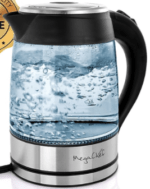 Use a stove kettle or electric kettle
Use a stove kettle or electric kettleMicrowave boiling will result in uneven temperatures. And impart food odors into your tea. Ok. I've used the microwave. Guilty as charged.
-
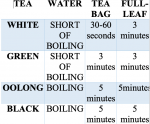 Steep for the correct amount of time
Steep for the correct amount of timeUnder-steeping = weak tea Over-steeping = bitter tea
-
Don't Squeeze the Tea Bag
WHAT?! I thought the same thing. Get all the flavor.(I even had this cool move with my spoon.) Not so. You're releasing the tannins when you squeeze the bag. This makes your tea bitter!
Whether you drink tea like President Lincoln did to stay awake, for its its anti-oxidants, because it calms you, is steeped with tradition and feels magical, or just because it tastes great, tea is here to stay!
What’s your favorite tea? I’d love to know in comments below!
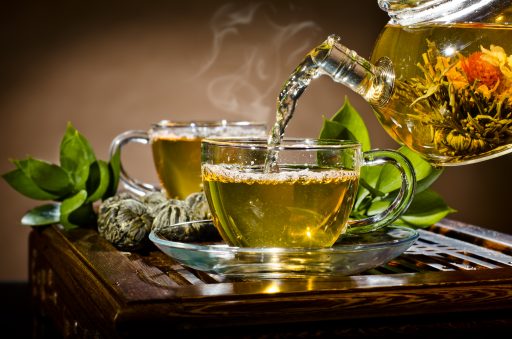
There we go! The legend of tea and how it came to be!




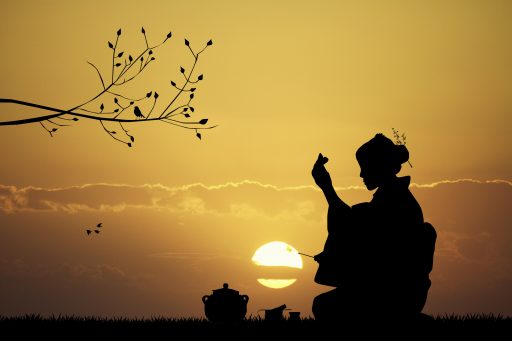
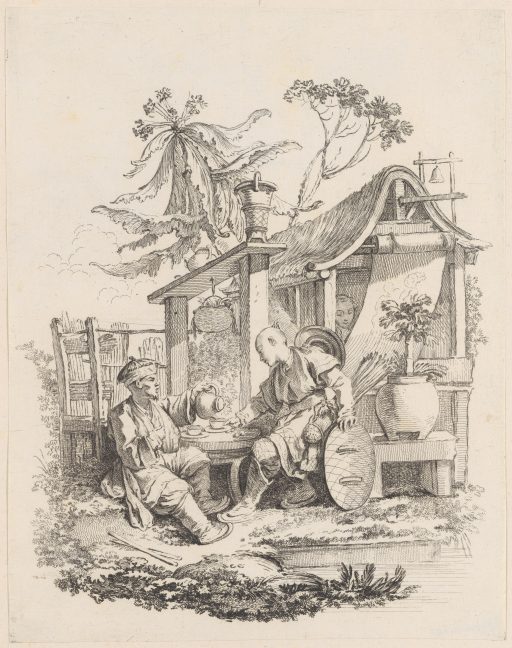
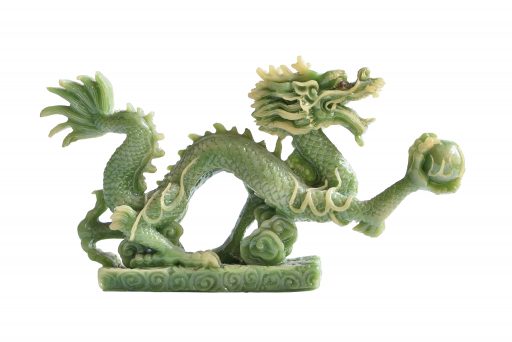
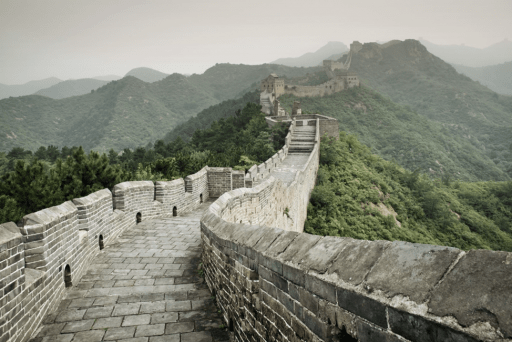
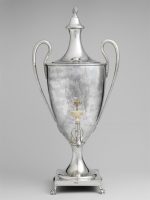
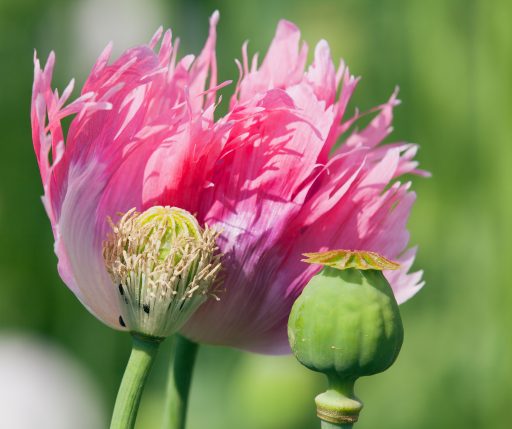
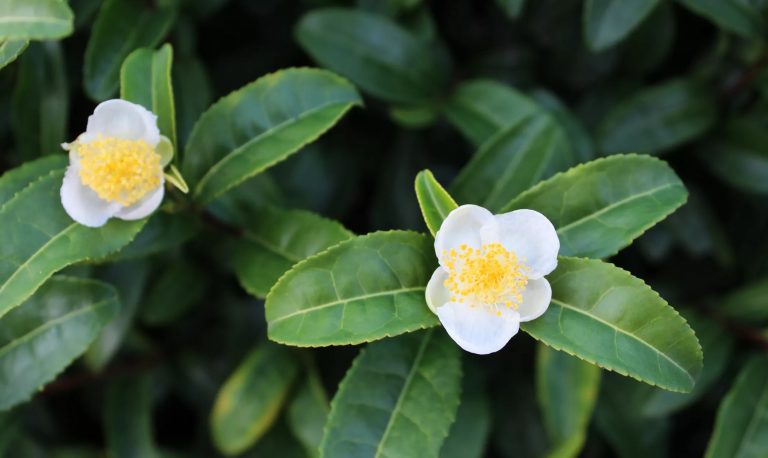
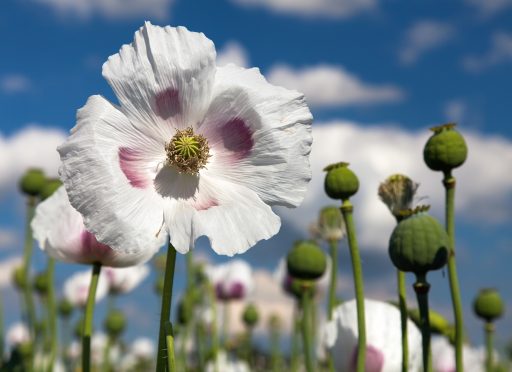
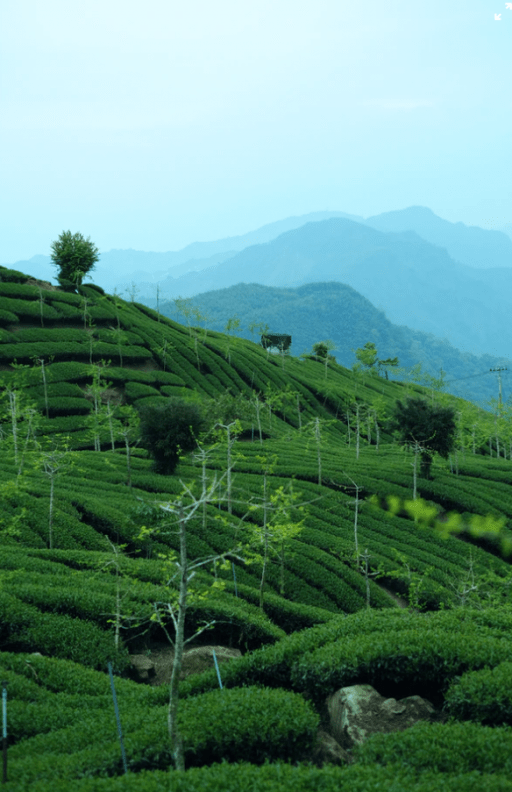
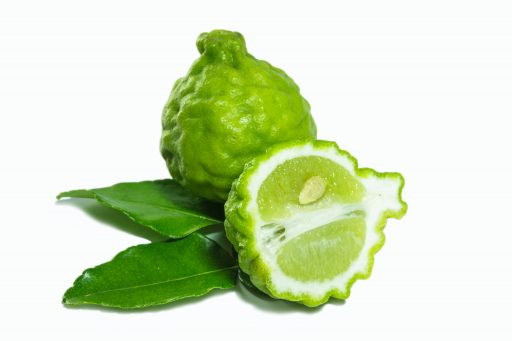
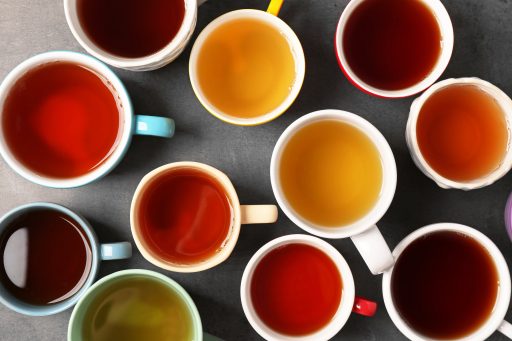
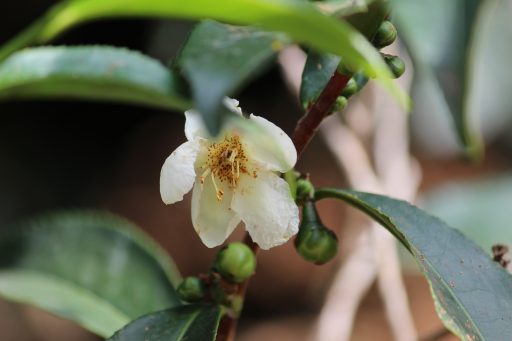
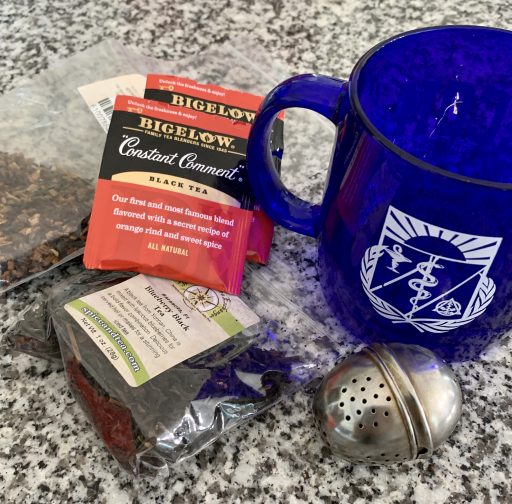
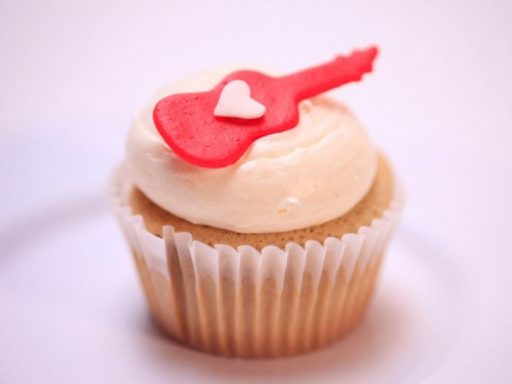





Great blog!! I love tea and found the article to be extremely interesting!!
Thx!!
Itta😊
Glad you liked it! Thank you.
I don’t think I’ve met a tea I didn’t like but if I have to pick… either something like Ceylon black tea or Jasmine Dragon Pearls. Thorough reseach, thank you, which I first misspelled as tesearch.
Jasmine Dragon Pearls sounds cool! Jasmine flowers are lovely. I’ll need to look for it. I like Ceylon black tea, too. Yes, lots of TEAsearch for this post. Tea is an intriguing topic.
This post really hits home with me. Love tea and this was very informative. Great job. It was tearrific! Mike
Thanks so much! Glad you thought it was TEAriffic! HA
Love the history of tea, and the added bonus of opium
HA!
I love earl grey, so I laughed when I saw what bergamot looks like! Its scent is much prettier then its appearance. As a tea lover, it was interesting to get a look at what goes (or what went) into my cup every day. 🙂
I was surprised at bergamot too. Glad you liked the post!
Wow. What a thorough history of tea. Great research. I had no idea it was the most popular drink in the world.
Me either. I found that a cool fact, too!
I don’t think my last comment was posted. This is a well-written and researched article about the history of tea and everything you need to know about tea.
Thanks so much!
Wow, very thorough. I knew tea was ancient but I’ve never looked into its history. Thanks!
You’re welcome! I didn’t know until I researched, either! It was difficult not to get carried away.
Another great post and now I know more about tea! My favorite is green tea and chamomile. Also at a Chinese restaurant I usually start with their house tea and until the entire meal. In the middle east, it is usually red tea with mill and they call it “tsai/chai”.
I’ve never been a fan of green tea but after all that research, I’m going to hunt down some leaves and use that instead of teabags. Tsa/chai sounds nothing like the chai tea in the US. I’d love to try it!
Goodness me I didn’t realise tea had such a rich history! Such an informative post! Thanks for sharing 🙂
I had no idea how much I’d dig up when I started researching, either! Thanks.
This was such an interesting post all about the history of tea. Thank you for sharing
Thank you for reading my post!
Very informative! I think this is very important to read as you don’t realise how much went into simple things we use daily!
Em x
I agree! The depths of tradition and history steeped (pun!) in that little cup of tea are amazing.
This is so interesting to read! I’m a huge tea drinker, and I knew a little history but really enjoyed reading this. Brilliantly written 🙂
Anika | chaptersofmay.com
Thank you so much! You just made my day!
I had no idea tea was linked to opium wars, I mean I love a good cuppa as much as the next person but…! Really enjoyed this post, I feel like I learned a LOT, thank you 🙂 Lisa
I didn’t know that, either and couldn’t wait to share! Thank you!
I love posts like this that explore the history of such everyday items like tea. I knew it had quite a rich history but this post is so detailed and informative! Great read x
Sophie
Thanks so much! I had no idea how intriguing tea would be, either. Glad you liked the post!
Oooh! So cool to learn about the history behind tea. I agree with the healing properties behind the plants. Kind of why China has a ton of medicine utilizing natural ingredients – from the earth. Thanks for sharing all of these fun facts!
Nancy ♥ exquisitely.me
Learning more about tea makes me interested to delve more into natural herbs.Thanks!
This was such an interesting blog to read! Being English it’s a given that I love tea haha so to learn the history behind it has been really enjoyable! Thank you for sharing 🙂
You have tea in your blood! I’m happy that you enjoyed my post. Thank you
Tea is my jam!! I didn’t know the story behind it so thanks for the education here. Great post!!
https://missymayification.co.uk
Glad I touched on a topic you like! You’re welcome, and thanks for stopping by.
This is such a cool and informative post! I did not know that tea was the oldest beverage known to man. That’s so awesome. I am more of a coffee lover, but I do enjoy a cup of tea every now and then too!
I am also more of a coffee drinker, but I’d say it’s 2/3 coffee to 1/3 tea. With tea being the oldest beverage, I decided that tea deserved a post, too! Thanks!
WOW! I absolutely love how your blog is put together, I wanted to take a moment to acknowledge the hard work you must have put into it! I love all the information you have given too! I didn’t know most of these things! I wanted to get into drinking tea and I think you may be my go to person!
Thanks so much! I feel gratified that you noticed. Tea has an amazing history. Just knowing about tea’s rich background makes it taste better! ha.
I am obsessed with tea! This was super informative and a very unique post I really enjoyed reading thank you!
Rach https://rachtalksbusiness.com/
I’m so happy that I could enhance your obsession! Thanks!
My friend loves tea! I only like it sweetened lol. Very informative as always!
Nothing wrong with a little sugar! The stimulating effects of sugar plus caffeine are greater than either one alone. Thanks!
Super informative! I love me some tea. I may or many not be shifted to buying it, too. 🍵
There are no affiliate links here! Important thing for me is that you liked my post! Thanks. 🍵
I used to love drinking tea, but then I developed an allergy to caffeine. So glad there is herbal tea so I can still have a warm cupful.
Caffeine allergy? Wow, that stinks. Good thing herbal teas are delicious. I hope you can take naps to offset the caffeine issue!
I’m more of a coffee drinker myself but this was so interesting!!
Thanks! I have a great coffee post here! Take a peek!
My spouse is a tea enthusiast, I’m definitely sharing this with him! Such a detailed post, I love it 🙂
Fantastic! Thanks so much for sharing my post. I hope he loves it, too.
very informative post.. i dont know these things before
Thank you!
I really enjoyed reading this post. Despite being a tea lover anyway, I learnt so much that I’d never even thought about.
http://www.thekellydianereport.co.uk
That’s great to hear! Thanks so much.
I never knew there were so many different types of tea!
It is amazing, isn’t it?
Very interesting read, I’ve never for once bothered about knowing the history behind tea, so glad to learn from your blog. I’m now going to make tea for myself. Thanks for sharing
I’m sure your tea was delicious! Thanks.
Wow! As usual – what a fabulous post. Learned tons and will never look at my ‘froth of the liquid jade’ the same way. Thanks!
I love that saying, too. “Froth of Liquid Jade!” Thanks so much!
Lovely post! I love learning about the history of ordinary things. Thanks for sharing!
I’m happy you liked it! Thanks.
What an interesting post! Super informative, thank you for sharing xx
You’re welcome. Thanks!
I had no idea that tea was related to the opium war. It’s great to see that there are so many varieties of tea. Thank you for sharing this information!
I learned that fact in my research too! It’s horrifying and intriguing all at once. Thank you!
I do love a good cup of tea! Best cup of tea ever was afternoon tea in london. Nothing will ever beat the taste of the fresh tea leaves. I’m not a fan of herbal due to my sweet tooth, I find them a little bitter but this is an awesome post!
I’d love to go to London for a cuppa! It’s on my bucket list. Nice that you enjoyed tea in a place steeped with tea history! I love black and oolong tea, too. Thanks!
This was pretty interesting! I knew it had roots in China, but I didn’t know the full story. Thanks for sharing!
I’m happy you found my post interesting! Thank you!
This is really interesting! I love tea especially herbal and fruity teas x
Thank you! Fruity flavors are nice. I’m a fan of passion fruit tea in the evenings.
Being British, I absoutely love a good cup of tea! I didn’t realise the full story and history on tea, but knew that it originated in Chine. This was such an interesting read! Somehow I didn’t realise that herbal tea wasn’t made the same way (tea leaves etc), I have defintely learnt something new today!
Thank for sharing!
Aimsy xoxo
Aimsy’s Antics
Fantastic! I love learning, too. Thanks so much.
This is so interesting!! Thank you for sharing!
Thank you! Glad you liked it.
I’m not much of a tea drinker, but I have to admit that it was very interesting to learn some of the history of tea! I’ll have to share this with my sister (she loves tea)
Much love always,
GABBY | http://www.gabbyabigaill.com
If I had to choose, I’d pick coffee! (I’ve got a post about coffee here) Tea has a rich and intriguing history, though. And you can’t beat iced tea in the summer. I hope your sister enjoys my post! Thanks for sharing it with her.
Such an interesting read thank for sharing the history of tea, I think i need to make one now!
Sarah
Any time is a good time for a cup of tea! Thanks!
Such an awesome read thank for sharing the history of tea, I think i need to make one now!
You definitely do! Enjoy your cup of tea. Thanks!